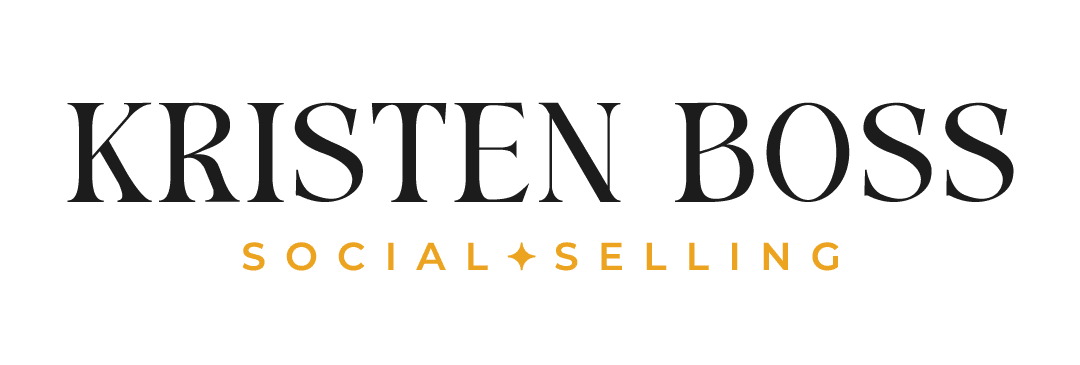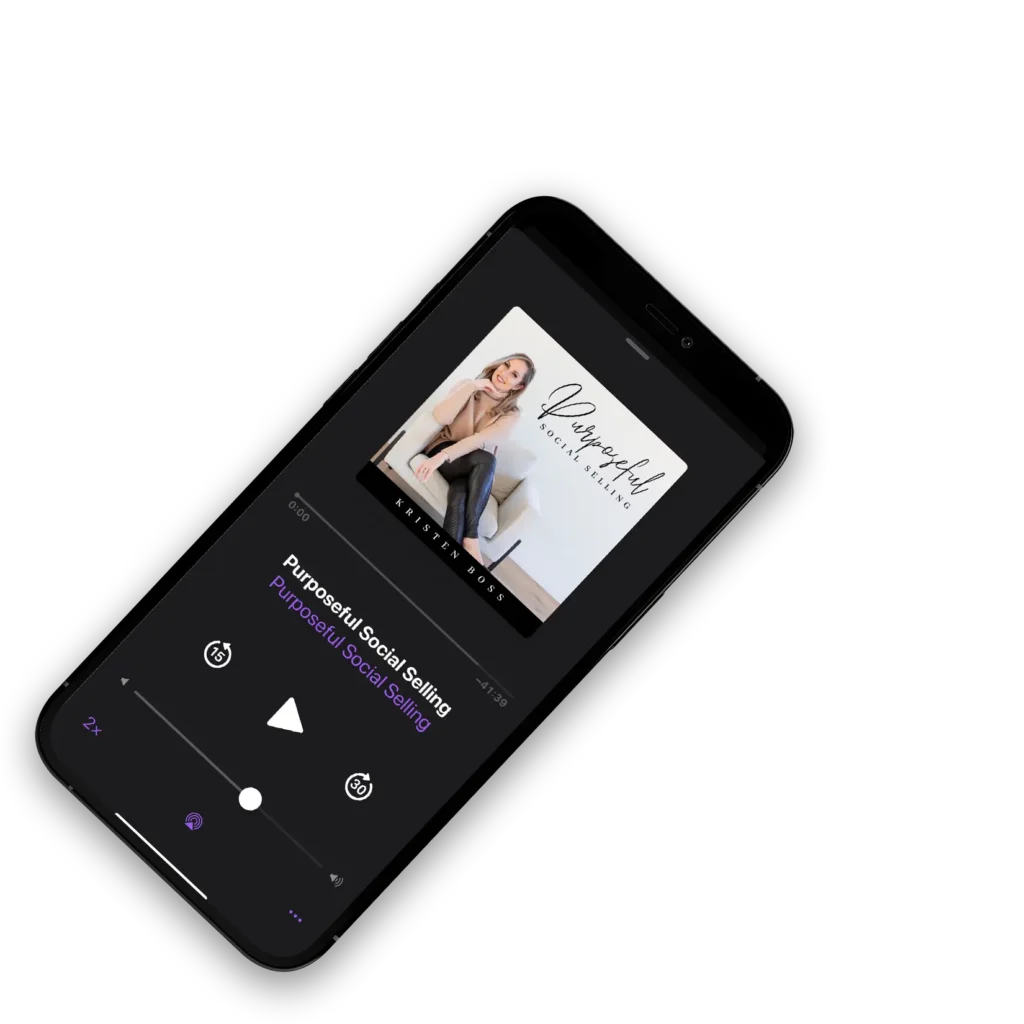In this episode, Kristen is adding onto the leadership topic by discussing what leadership really looks like. And spoiler alert! It’s not what you might think. Leadership isn’t just for super successful, 6 figure earners. Leadership also isn’t just plugging your new team members into a system and hoping they figure it out. And it’s definitely not always having the answers.
So what is leadership actually like? Well, strap in because Kristen is talking about leadership triggers, teachers, and truth. And how understanding those triggers can lead you into a better position as a leader.
Let’s check out a few of the highlights:
- Top struggles for leaders in network marketing
- Why systems aren’t a substitute for true leadership
- Importance of self-awareness as a leader
- Definition of triggered leadership
Understanding what triggers you and also how you react to those triggers can help you become a more self-aware leader. This will allow you to better prepare for those unwanted reactions that are standing in the way of you becoming the leader you know you can be. Show yourself some grace throughout the process. If you can’t hold space for yourself, how can you hold space for your team?
You heard right! Kristen is hosting a FREE Rising Leader Webinar Friday, February 3rd at 11 AM MT. Register today, and we’ll see you there! Click here to register.
Are you looking for an online community where you can be inspired to be the best version of you in 2023? Look no further! Join Kristen’s new Facebook Community, The Purposeful Social Selling Community, where you can connect with other like-minded social sellers looking to break the hustle cycle and find sustainable growth in the new year. Join for free by clicking here.
Thanks for listening! Do you have a question about network marketing? Kristen can help! Drop your question here, and she just might answer it live on the podcast: https:/Kristenboss.com/question
Connect with Kristen:
If you’re ready to learn the simple process of running your social selling business online, you have to check out Kristen’s live group coaching program! The Social Selling Academy: www.thesocialsellingacademy.com
Transcript for Episode #146 Triggers, Teachers, and Truth:
Kristen Boss (00:03):
You’re listening to the Kristen Boss podcast. I’m your host, Kristen Boss. As a bestselling author and performance coach, I’m on a mission to share about sustainable and purposeful approaches to both business and life. Each week I bring relevant topics that I believe are necessary to create a life of purpose, significance and meaning. Entrepreneurship is about so much more than growing your bottom line. It’s about who you are becoming in the process and building a life that is truly extraordinary. Entrepreneurship is really just the beginning.
Kristen Boss (00:56): Hey friends. Welcome to another episode of the podcast. Today we’re going to talk more about leadership. If you’ve noticed, I’ve kind of been on a leadership kick and there’s a reason for that. Listen, I have huge things in the works for 2023. It is taking everything in me. Not to just tell you all right now, but you’re all going to have to be along for the ride with me. I’ve been dropping hints in my email list. Listen, if you’re not getting my emails, they’re fun emails. They’re not spammy emails, they’re emails that are fun to read and I’m kind of spilling hints over there. And if you didn’t know, I’ve got a free Facebook community, I have the link in the show notes. I’m dropping all kinds of hints and goodies over there. People are going swifty mode, trying to figure out where a certain picture is, what’s coming up.
Kristen Boss (01:42): People are guessing and it’s so fun seeing you all guess on what I’m cooking up. But here, listen, I’m going to tell you the first thing. First thing is I’m actually doing a free That’s right free leadership webinar on all things leadership, why people struggle with leadership, why people fail with leadership, why people aren’t growing in their business. What are the unique challenges to leadership? Because listen, you can be amazing at selling and at marketing, but if you don’t know how to lead, you’re always going to have to be selling forever and ever. Do you grasp what I’m saying here? If you don’t know how to develop people in your organization, you are always going to be in the front being the main muscle of your paycheck. This is even true for coaches. If you don’t know how to outsource and delegate and hire a strong team, you’re always going to have to be at the front.
Kristen Boss (02:33): You’re always going to have to be responsible to be the main muscle for driving revenue and eventually, if you’re not delegating and developing leaders well within your organization and developing a strong culture, you are going to burn out leadership development. When you don’t have leaders underneath you, you will burn out. So you need to come to this free webinar I am doing on Friday, February 3rd. All the details are in the show notes so you can click the link to register for the webinar. You’re not going to want to miss it. It’s going to be free one hour. And then at that webinar, I’m going to do one because I have multiple big reveals for the year. I’m doing one big reveal at the webinar. You want to be there because the thing I’m going to reveal, let’s just say if you come late to the party, you might end up missing out on something I don’t want you missing out on.
Kristen Boss (03:28): So get your friends, get your people, get your teammates. Come to the free webinar. Listen, it’s free and you always know I drop good stuff. I always make it worth your time because I know your time is so valuable. So come to the free webinar again, the info is in the show notes. Okay, so since we’re on the topic of leadership, I have been dropping some spicy content on Instagram in my groups in the social selling academy. I have been talking about leadership in a way maybe you haven’t heard before. I think a lot of times when we read about leadership, we think about John Maxwell, the godfather of leadership, and I have a lot of respect for John Maxwell and I really love what he puts out in the world. But there are unique challenges that come with leadership in network marketing, marketing and developing people.
Kristen Boss (04:14): And here are the key things I see most people struggling around when it comes to leadership. You ready? I’m going to give you a list. The art of coaching there is leading and then there is coaching. Coaching is a skillset that is severely lacking in the network marketing industry. People don’t know how to coach how to ask hard questions, how to hold space. And you’re like, well, what does hold space mean? Come to the free webinar, come to the things I’m, I’m going to be sharing with you how to hold productive team call meetings, how to actually hold a team call meeting that people show up for. Listen, if nobody wants to get on a zoom for another meeting for another boring thing, listen, if you’re not planning and taking the time to make your team meetings worth their time, why would they take the time to show up?
Kristen Boss (05:05): How to hold productive team call meetings, how to hold people accountable. Most people are terrified to hold people accountable. They’re afraid of hurting feelings. They’re afraid of making somebody mad. They’re afraid of somebody walking away. So they just don’t ask the hard questions. They don’t hold people accountable. How to create self-sufficient leaders. Leaders who feel confident taking the tasks. I see so many leaders. I’m not going to even say leaders. I see so many uplines or coaches if we’re going to talk across the board here. Anybody who has somebody that they’re coaching or somebody that is underneath them. I see so many people creating co-dependent relationships where the individual thinks I can’t do a post unless my upline proves it for me. Edit, its for edits it for me or my edit or my upline even writes it for me. I see so much co-dependent leadership out there.
Kristen Boss (05:57): We’re going to talk about that too. How to challenge people to do more like how to actually get people out of their comfort zone. Cause people will stay there, they will set up camp there. And I see so many uplines afraid to challenge people outside of their comfort zone because once again, they’re afraid of hurting feelings. How to actually get people unstuck. Listen, I see so many people with team members where they’re like, my team is stuck and they don’t know what to do with the team and then they read the behavior of the team and they assume they don’t want it. Listen, just because they are not performing doesn’t mean they don’t want it. It might actually mean they have stories and beliefs getting in the way of them taking the action, how to actually help someone follow through with what they said they’re going to do.
Kristen Boss (06:38): This is huge. A lot of people are like, I asked this on my Instagram stories. What’s the most frustrating part of leadership for you? And probably 80% of the answers were people saying, getting people to follow through on what they say they’re going to do. So many people saying, I’m going to do this, and then they don’t do it and I’m going to help you with this. How to keep people from quitting. How to keep team morale high and in a non-winning season. Listen, it’s fun when the you’re everyone’s on the momentum bus and everyone’s winning incentives and earning and going on the trips, but what happens in a hard season? Because if you don’t know how to keep team morale high, they look elsewhere or they quit. I’ve seen this so many times how to bounce back from a hard season. What happens when somebody goes for a huge goal goes for the rank advancement and they miss it.
Kristen Boss (07:23): I see people go for rank advancement, go for the next level in their paycheck and they miss the mark and they get so discouraged, it’s so heartbreaking. It shatters them. They end up taking a break for months trying to recover from the heartbreak, trying to recover from going so hard and not hitting it. And then this is when I actually see some people, they’re so devastated by not hitting the goal that they walk away from it entirely. So how to get people to bounce back when they’re disappointed. How to create massive buy-in, how to get people bought into the overall team vision. How to sell vision to your team. How to actually create momentum. How do it help someone who keeps quitting? How to actually develop a leader. Turning someone from a follower into a leader. How to create a positive team culture. How to handle toxic leaders or team members, how to handle drama.
Kristen Boss (08:10): Good Lord drama. I could have a podcast episode on drama. You guys, this mean girl crap in this industry has got to stop. It has got to stop the gossip, the pettiness, the competitiveness, the who’s out for who. The screenshots that you’re dropping in side chats, talking crap. You know what I’m talking about? Drama and gossip and pettiness will kill your team culture. We can’t have mean girl culture in network marketing. Can we just make this a resolution for forever? This has got to stop. I get it. Gossip, it’s it. It’s it’s fun. I mean this is why we love watching trash TV because really we’re just watching other people gossip about other people and it’s fun. I’m not going to lie. I like it’s easy to get caught up in gossip. I’m a woman. Listen, I was a hair stylist for 15 years. You don’t think I know about gossip?
Kristen Boss (09:08): Oh my gosh, I’m a walking billboard for gossip if I am not careful. And it’s such a low vibration to be walking about in the world, being someone who gossips. That’s such a low vibe thing to do. Think about what you’re doing with your time. You’re spending your time and your energy talking smack when you could be building people up. Instead, I didn’t plan on going on this tangent today, but I am because I am tired of people feeling like there’s vendettas people saying like, you’re dead to me. Friendships getting severed. Why aren’t we talking about this? People who have been hurt so deeply hurt, brought into this business, they’re best friends and they don’t perform in a certain way or they decide this isn’t for me. And the person that brought them into the business, they treated them like, you’re dead to me unless you’re producing money for me, you’re dead. To me, that is not a leader, that is not a leader. Friends, and if you listen to my last podcast episode, that’s actually a tyrant. And some of you might want to like punch your steering wheel or your DA dashboard or throw your phone across the wall with some things I’m saying, but you know what, if I don’t say it, who’s going to?
Kristen Boss (10:19): Most of the big name coaches, other name coaches in this industry are men, but they are not talking about this because they are men and how they talk about time, I’m sorry, how men talk about time in a predominantly female forward industry. I’m sorry, we got to have a woman talking about it. I’m not saying they don’t have valuable things to offer, but less sent. When I was building, when I was starting my business, every single person that was telling me how to build a business was someone who didn’t have kids. Someone who was either a newlywed and been around so many people that have generated millions of dollars and then they had kids. That’s a different ballgame. Like yes, it’s still hard, but I want to learn from people who built million dollar businesses and had massive impact with kids. That’s my story guys.
Kristen Boss (11:11): I started my business with a one-year-old and a two-year-old and it was hard. So I get it. I understand the demands of laundry and meal prep and sick kids and things not going to plan and a husband not who’s maybe home and not working in unemployment. And listen, we lived on paid support. We raised support for my husband’s salary. Listen, I get it. Okay, I know I went on a tangent, but we got to talk about that. This drama, this mean girl culture. We have got to stop. We have got to stop friends because for an industry that says we’re we’re about women empowering women, we are so fast to tear women down. My goodness, my goodness. So we got to talk about that. How to handle drama. When you see it on your team, when you see toxicity, when you see negativity start to trickle out and ripple out, how to have high turnout rates on team calls, like how to actually get people there and have fun, how to help someone launch successfully.
Kristen Boss (12:09): They say, I want to do this business and getting them success. It’s not just an onboarding system. All of you’re like, if I just had the system list, then you can have the best system in the world. But if you don’t know how to lead, coach, develop, hold accountable, ask the hard questions, have productive team calls. I don’t care what your onboarding system looks like now, it is both and your systems cannot do the leadership legwork for you. Leadership is messy. You are in the trenches. You want to know if you’re leading well, you’ve got dirt under your fingernails to show it. You want to know if you’re leading well, you’re probably in therapy. I’m not even kidding. Like leadership demands, self-awareness, leadership demands selflessness, leadership demands. You get in the mess. You’re not above it, you’re in it. Leadership is taking the fall when no one wants to.
Kristen Boss (13:04): Leadership is taking responsibility when evidence would suggest that somebody else’s fault, but you’re still going to take responsibility. Leadership is taking ownership when it’s so painful. Leadership is always asking and how did I create this and how am I responsible and what’s my role in fixing this? Leadership is never pointing the finger out and is always pointing the finger back at yourself. Always, always. That’s why leadership is painful. That’s why people don’t do it. We’re going to talk more about this at the webinar. You need to come, how to help someone relaunch someone who quit for a year and came back to you and says, Hey, I’m back. How do we restart? And you might be like, I don’t know how to get them to restart. Heck, I’m struggling too. How to rank advance as a team, as a collective instead of it being an individual monumental effort.
Kristen Boss (13:52): If you were like, yes, yes, yes, I’m slamming my fists on my desk. If you’re like, this is me, I got you. 2023 is going to be a massive year and your first step is getting to the leadership webinar. You hear what I’m saying? Get there. Check the show notes. Make your top priority because listen, my social selling academy, it is amazing for sales and marketing and mindset and strategy and how to network and how to connect. And you can be amazing at that. But once you have an organization of people under you, once you have people under you, it’s no longer sales and marketing skills. Now it’s leadership coaching and personal development skills. And the blind cannot lead the blind. If you are not self-aware, how on earth are you going to be able to look at somebody and know what’s going on? If you are not willing to do the hard inner work, how could you ask anybody else in your organization to do the inner work as well?
Kristen Boss (14:47): You want to know why people don’t lift the lid? You want to know why people keep bumping up against their potential because it is painful. Moving beyond your potential is the most painful thing in the world, but it is the most worthwhile thing in the world. Do you want, last year was for me friends, let’s get really honest. Last year for me was the most painful leadership year of my life, but I learned the best leadership lessons. It made me better. What did I do when it got hard? I got a therapist and I started talk. I started working with my therapist. I’m always about, I know how to self-coach. I have life coaches and there is a place for life coaching and the therapy. There are two different modalities. I became a trauma informed coach. I learned to coach through the lens of someone’s trauma and understanding when it’s time to outsource them to therapy and learning, nervous system regulation, nervous system is everything.
Kristen Boss (15:40): You’re going to be hearing a lot about nervous system regulation in this podcast this year because half the time what we are actually trying to regulate is not just our thoughts but our nervous system response. There is the thoughts in your head and then there is what your body is doing. Then there is the anxiousness you feel. Then there is that terror. You feel the fear of rejection, the shame, my gosh, I could mean turn this podcast into shame-free social sellers and we just talk about shame and it would serve you so well. But that LA last year was taking radical responsibility last year was looking at things and being like, does this need to be burned down? And one of the things that I burned down was the mastermind and I loved it. I’ve been doing the mastermind for two years. I’ve been coaching now hundreds of six and seven figure earners in the trenches of their business, having the hard conversations, going deep on all of those things I said about how to hold space, how to have productive team call meetings, how to launch, how to onboard, how to build on build systems, how to diversify their income streams in a healthy way where it’s like how do you take your network marketing money and put it to work somewhere else teaching them.
Kristen Boss (16:47): So in depth hearing, in intimacy of team calls for years of what’s going on, having an intimate thumb on the pulse of what leadership is like and all the pitfalls and holding space and understanding. And I realize it was tying me, it was strapping me down from keeping me from impacting more people because guess what? Leadership is not reserved for six and seven figure earners. And I actually noticed, man, if they had learned some of these lessons way earlier in the career, we’d be doing way less cleanup here. It’d be way less painful because listen, if you don’t learn leadership now, it will demand it of you later. That’s fine. You can try and hustle your way through and work yourself to the bone. And then one day when you have the six figure paycheck and you’ve got burnout and an adrenal fatigue and you’re emotionally exhausted and depressed and anxiety written, and you’ll wonder why.
Kristen Boss (17:43): This is why I wanted to cry. When I realized I had to burn down my mastermind from a really healthy place, I’m like, I have to let this go. And it was a very similar to when I was doing one-on-one coaching. There was a time when I had 2020 one-on-one clients and I had a wait list booked out six months. And I was like, there, this is not sustainable. I’ve all these people needing my help. And because I’m in the weeds, because I’m on 20 calls a week, that’s 20 hours of my week on all of these individual calls where they’re all coming to me with the exact same problems. They’re all asking me the exact same questions. So I was like, okay. And trust me, I loved my one-on-one clients. It was the best. And if you’re one of my one-on-ones listening to this, I miss you and I love you and you guys were so special to me in that season.
Kristen Boss (18:32): I really mean that. And if we haven’t talked to them, wild, send me a DM over on social. I want to hear how you’re doing. But listen, when I had to let go of one-on-ones, I understood. It was like, okay, I have to let go of this and put them in a mastermind to get them all in a room together to better leverage my time, better serve them all because they’re around these things. And that’s what I did for two years. And so when I let go of one-on-one, I was crying, literally crying. It was terrible. Now, did I make some poor choices with how I decided to let go of my one-on-one? Absolutely. And at the time I was, I would say that was I ignored my gut instinct. And you will learn this too about leadership. Don’t ignore your gut. I ignored my gut instinct and took it from somebody who was, I took the advice from somebody I assumed they knew better than I did.
Kristen Boss (19:21): It was the coach I was working with at the time, and I assumed they knew better than I did. And I just took everything they said at face value. And I ignored my gut saying, I think there’s a better way to do this. I think there’s a kinder, softer, better way to do this. But I just took the advice of that coach point blank, and it wasn’t the best transition, but we learned these things, we learned that. And so then it was the mastermind and it’s back at the same place where I’m like, I’m now, I can only handle so many people where I’m coaching them intimately. And there’s only so many people in the industry who would pay 15 to $20,000 for six months of intensive, high level coaching. So I’m like, okay, well what’s next? And I knew I had to let it go, but you’re going to hear about what I created next this year you guys, I can’t just wait, get to the webinar.
Kristen Boss (20:14): First reveal happens at the webinar. Let’s talk a little bit about triggers, because I talked about how self-awareness is so key in leadership. You cannot escape this part of leadership. Your emotional intelligence is vital to your success as a leader. You have to become self-aware and learning to be self-aware. And I talked about nervous system regulation is understanding when you are operating from a place of triggered leadership. This is the concept of triggered leadership. And what I want to tell you about triggered leadership. You’re like, well, what is triggered leadership? Kristin, can you explain this to me? Me trigger leadership is when you feel offended, frustrated, or have an intense emotional response after observing the actions or behaviors from someone in your organization. I’m going to read that again. Triggered leadership is when you feel offended, frustrated, and have an intense emotional response after observing the actions or behaviors of someone in your organization.
Kristen Boss (21:12): Could be A, your upline, your downline, your crossline, someone in your complaint. And from that emotionally charged place, from that trigger, you react. Not learning to pause, not learning to regulate, not learning to ask yourself, why am I triggered here? What am I telling myself? I wonder why I’m having such a strong response to this person. Not learning to pause and notice what’s going on. And then deciding how you’re going to respond to the trigger that’s happening in your body. Learning to self-regulate, learning to be like, okay, that just pissed me off and sent me into a rage. My heart rate is up. I feel tenseness in my body. I feel like I want to throw my phone. That is not when you respond. That is not when you send a dm. That’s not when you send a voice text. That’s not when you write a post to your Facebook group filled with a thousand people.
Kristen Boss (22:01): That is not when you reach out to corporate. That is not when you respond in a text. But we do. I see so many leaders respond from this place and they don’t even know it. They just, they’re, they’re angry and their emotional experience feels so real and so charged, and then they just do. So I want to walk you through what a trigger can feel like. A trigger can feel like resentment, like pissed, a seething, bitterness that’s just always simmering in the background. Anger, rage, frustration, A trigger can also, we can go, that’s the anger side. We can move to the other side of the spectrum, which is grief, sadness. So it could be rejection, like an intense feeling of rejection, maybe humiliation or embarrassment.
Kristen Boss (22:52): Shame. Shame can be an emotional experience where someone triggers the shame in you, right? Annoyance, offense, feeling deeply offended by the actions of somebody else, feeling deeply offended by words that come out of their mouth and feeling irritated. I think we walk in a world where it’s like we talk about triggers a lot, like trigger warning trigger me. And I want, how I’m seeing people handle triggers right now is I see them moving about in the world as if it’s everybody else’s responsibility to not trigger them. Like, Hey, your job is to not trigger me your job. Nobody can trigger me. And it’s just what they’re trying to do is manage the behavior of others so that they can live in, have an emotional experience that they want to have instead of being responsible for their own triggers, they hold the person that supposedly triggered them responsible for their own emotional experience.
Kristen Boss (23:58): You triggered me. It’s your fault. Instead of, I need to learn to become somebody who is aware of my own triggers and I need to learn to self-regulate and I need to learn to respond to my triggers, not aggressively hold someone else accountable for what they say, what they do. You can’t micromanage the behavior of others in order to manipulate or generate or create your own emotional experience in the world. You are responsible for your own emotional experience in the world. Am I saying you can’t have boundaries? Absolutely have boundaries, but notice if you’re walking around the world looking for ways to get triggered, just looking for evidence, looking for reasons to feel constantly offended. And I can say this to you there, there was an area in my life recently where I was guilty of this. I was just literally constantly looking for evidence so that I can continue to live in my story of victimhood in one particular area in my life.
Kristen Boss (25:00): And I was just like, oh, can’t wait for them to trigger me. I was just like, oh, if you trigger me, I’m out. It’s just like instead of like, wait, hold on. My trigger is mine. It is my response to what that person is saying. I can’t make somebody, I can’t force someone to change their behavior. I can’t control anyone, but I absolutely can control my response. I can control how I handle my trigger. And notice how I’m not saying fix. Because your nervous system is your nervous system. And eventually with practice and with time, you’re going to learn to regulate and not maybe go off the handle or feel intense offense or embarrassment or rejection or rage or sadness or grief. But right now you just know your knee jerk nervous system response. Let me talk about tri so we know what trigger can feel like.
Kristen Boss (25:48): What can a triggered reaction. So you have the trigger and then you react to the trigger. This is what a triggered reaction can look like. Withdrawal. I’m going to ice you out. I’m not going to talk to you. You don’t deserve a word from me. Snapping. Snapping at people, curt responses, passive aggressiveness. That is a triggered reaction. Avoidance. I’m just going to avoid you. Pretend you don’t even exist in the world. You’re dead. To me, that is a triggered reaction. That is a reaction to your trigger thought, dumping, literally just verbal, vomiting all over the person from your emotional experience that you have not regulated, you have not checked, you have not cooled off. You’re just going off the handle. And I see people do this like, oh, lordy. When they do, it’s like, dear diary posts on social media and they are ranting. I’m embarrassed for the people who rant from their triggers on social media. I can see you. I can understand that. I understand the emotional experience is so intense, but don’t turn it into a post. Don’t turn it into a post. That’s not what leaders do. Leaders heal leaders like, okay, where am I responsible in this? But they don’t make the world responsible for their triggers. This might be a tough episode to listen to, but I think you need to hear it because this is why leadership is so painful.
Kristen Boss (27:11): What’s another triggered reaction? You ready? Coddling, coddling. Somebody like, oh, I’m having this deep fear of rejection. I’m suddenly have this trigger of abandonment that’s coming up. And so my response to that trigger is to move into a place where I am coddling you or I am people pleasing you, like I’m leaving myself to people please you. I’m going to overcompensate. Maybe enable, that can be a response to a trigger, like the trigger of I’m afraid of being abandoned, so I’m going to overcompensate and leave myself and have no boundaries and do those things. Another one, blaming and shaming. I’m pissed. I’m going to point the finger at everybody else. Blaming and shaming. Shaming people, shaming self. There’s a lot of ways to go about this, and I like some of you might have or might be a hair’s breath away from pausing this episode and saying, I’m never going to listen to Kristen boss again, but please know, please know that I have done this work too.
Kristen Boss (28:16): This is not for all areas of our life. We can just take business out of this and call it triggered parenting. We can call it triggered relationships. We can call it triggered marriage. Like, Ooh, when I am triggered, how do I show up for my child? When my child does this behavior and I am triggered, am I learning to regulate my own trigger or am I blaming the child because they triggered me? Am I responding in anger because this person behaved in this way and they don’t know that that’s my trigger? But you are responsible. You are responsible for your triggers, you are responsible for healing. And so here’s the thing, people are messy. Here’s why. Leadership is sooting. Hard leadership means you are working with people and people are so messy. They have baggage, they have old childhood wounds, they have unresolved trauma, they have unhealed trauma.
Kristen Boss (29:01): They have a nervous system of their own, they have their own triggers, they have their trust issues, they have their own thoughts. Who would’ve thought you’re leading people with their own thoughts, their own feelings, their own emotional experience of the world. So of course you, you’re going to be leading people where you have your own triggered style. If you haven’t listened to the last episode, you need to, because I talk about the four unhealthy leadership styles, the cheerleader, the tyrant, the micromanager, and the victim. And it’s just like you will have your own way of defaulting. So a lot of people when I did a survey were like, oh, I default to victim or cheerleader victim, cheerleader and manager, and the brave ones, I see you. I love the ownership and the honesty you had with saying, yeah, I can be the tyrant. That’s me.
Kristen Boss (29:42): And it’s hard to say that. Nobody wants to say, yeah, hey, it’s me. I’m the problem. It’s me. I’m the tyrant. But if we cannot be able to see ourselves in all of our flaws and all of our shortcomings and view it through the lens of compassion, be like, oh, why? I wonder why I moved to this mode of being a tyrant when I’m scared. Oh, I’m learning because that’s from my childhood and I learned I had to, my way of staying safe in the world was exhibiting these behaviors. This is why I think therapy and coaching and understanding nervous system and trauma, it all goes hand in hand. It all matters. I tell people, I’m like, I can hand you a strategy book, great, but if you have old child wounds, if you have stories that you’ve been carrying for decades, no strategy is going to fix that.
Kristen Boss (30:32): You might try and force the strategy, but eventually you’re going to default to your way of living because of an emotional experience in your way of seeing the world. So you have your unhealthy leadership styles, and then you’re leading other people who have their own default leadership styles. So you could be somebody that’s like, yeah, I default to cheerleader, and then you might have someone in your, you might have an upline that defaults to tyrant, but I really want you to not be in this place of blaming and being like, oh, my upline needs to be listening to this. This is for you. But you also have people in your organization where it’s like, oh, I have several people on my team that move into victim mentality. I have several that go into cheerleaders and they can’t lead their teams and they don’t know why their teams aren’t having success, so on and whatnot.
Kristen Boss (31:13): Here’s the thing, you’re not leading robots. You’re not leading people who you know can program them pro program them into doing the behaviors you want. This is why leadership is so messy, messy. This is why you have to do, listen. This is why you have to do the work on yourself because how on earth can you hold space for people if you don’t know how to hold space for yourself, if you don’t know how to sit with yourself and ask the hard questions. If you don’t know how to look in the mirror and see, yeah, I can be a tyrant and also understand, wow, and I can have so much compassion for myself because I realize this is from this story, this fear, all those things, but you are not leading robots. You can’t just turn people off and on. You can’t treat them as like, Hey, I programmed you to do this.
Kristen Boss (31:52): I run you through the protocol. I put in a system in place. I gave you an app. Why aren’t you doing the things? This is why friends listen. People get discouraged. They quit, they get annoyed, they whine, they blame, they have excuses. No system in the world is going to fix the human factor. The human factor is that people have thoughts and feelings. You can run people through a system, you can duplicate the system all day, day long, but it will not, a system will not rescue them from the human experience of discouragement and sadness and annoyance and life inconveniencing them. This is why I’m talk, this is why leadership skills, remember where I’m saying, yeah, you can have this amazing system, but leadership is what gets people through it. Leadership is what gets people results. This is the messy part, and here’s the hard truth. If you do not become a self-aware leader who understands how to manage your own thoughts and emotions, you will constantly be operating as a triggered leader.
Kristen Boss (32:55): And when you get burnt out, it is not the tasks of your business that burns you out. It is your emotional experience, your lived experience of your business that burns you out. I mean, can you imagine your nervous system if you’re triggered like 35 times a day constantly in fight-flight response 24 7. Listen, this is what I teach in my academy. I’m like, I’m going to teach you how to get out of the fight, flight and freeze response. I’m going to help give you this self-awareness first, you’re going to learn to manage your own mind. That is the academy. You’re going to learn, and I have something else coming this year, but it’s like you have to learn to be with yourself and regulate yourself and manage your own mind, your own emotional experience.
Kristen Boss (33:40): Otherwise, you’re just going to keep being a triggered leader. You’re just going to keep leading from your triggers and this idea of the burnout from an emotional experience, the burnout, again, this fight, flight and freeze your nervous system, living in that experience 24 7 is finally going to say, enough, I need a year long nap because I can’t keep living an environment where I’m constantly feeling triggered by literally everything, but that’s a victim way of viewing it, of like, I’m so tired of being triggered by everyone and everything, and I’m so tired and nobody listens to me, so I’m just going to disappear. Instead of how do I learn to heal and be with my triggers? I don’t ever think we fully heal them in life because we are a human, and I think to believe that we fix ourselves as a form of toxic positivity, thinking like, oh, if I dislike mindset myself enough, enough, I’ll never have a negative thought again, sorry, not on this side of the planet because negative thoughts are what keep you alive.
Kristen Boss (34:33): Your brain’s like, Hey, this is a survival mechanism. My job is to tell you what looks risky, what looks unsafe, and keep you away from that all times. And guess what? That’s your negative thoughts. Can’t do that, won’t do that. Seems unsafe. That’s just your brain using the good old survival mechanism. But most people live out of their monkey brain their whole life living in the fear, not knowing how to access their prefrontal cortex and have higher reasoning and learning to be with their triggers and ask the hard questions. But here’s the thing, you can choose to be traumatized by your triggers and be like, I am so tired. I am done. Or you can look at your trigger as your teacher and ask, okay, this thing I’m feeling, what is it teaching me right now? What is my lesson in this trigger? Your trigger is your teacher if you let it be.
Kristen Boss (35:22): It doesn’t have to feel like an emotional grenade that’s going off plenty of you don’t have to feel like you’re out, have to outrun your triggers. If you don’t know how to be with yourself, then yes, you are going to be walking around in the world constantly. Eventually, you are going to live in such isolation because the world will feel like a trigger to you. It will feel like everywhere you go, everyone’s a trigger, but you can’t outrun your triggers. You have to learn to be with them and love yourself in them and understand the origin of them, and when you understand that, you can lead powerfully.
Kristen Boss (35:57): Friends, if you haven’t shared my podcast with a friend today, maybe two, today is the day. Share it. Leave a review new. I have a new brand. It’s so fun, all things new, and I would just love for you to leave a review. If you’ve been a longtime listener of mine, leave five star review if you feel like it’s a five star podcast and share with the people why is this podcast worth listening to? Why is it different? And that’s honestly why I rebranded, because I’m like, I don’t think I can handle another conversation just about growing the bottom line because the human experience is so much more than growing a bottom line, and I’m going to share with you a little bit more about some money lessons I’ve learned. As you know, I have had a successful business and I’m feeling very, very blessed and very grateful, but there was some real healing that had to happen.
Kristen Boss (36:44): You think healing has to happen, like you heal once and then you make all the money. No, it’s like you’re always healing and then you’re healing a new level. When you come into money, you’re like, oh, well, this is on bringing up wounds I didn’t even know existed. So friends, Leadership webinar, meet me there February 3rd, check the show notes. I believe it’s at 11:00 AM Mountain Time. I’m just going to check my calendar because here I am not prepared to tell you the exact time. Yeah, it’s 11:00 AM Mountain Time, noon Central Time is The Rising Leader Webinar. That’s what we’re calling it, the Rising Leader Webinar. Are you a leader on the rise or are you a leader on the run? I hope this year you choose to be a leader on the rise. Maybe you’ve been a leader on the run for a long time now it’s time to be a rising leader. I’ll see you at the webinar and I’ll see you at the next episode.
Kristen Boss (37:44): That’s a wrap for today’s episode. Listen, if you love what you heard here today, I would love for you to leave a real quick rating and a review. This helps the show get discovered by new people. Be sure to take a screenshot of today’s episode and shout us out on Instagram. We’ll shout you right back out. If you’d like to find additional resources or discover how to work with me, head to kristenboss.com.










